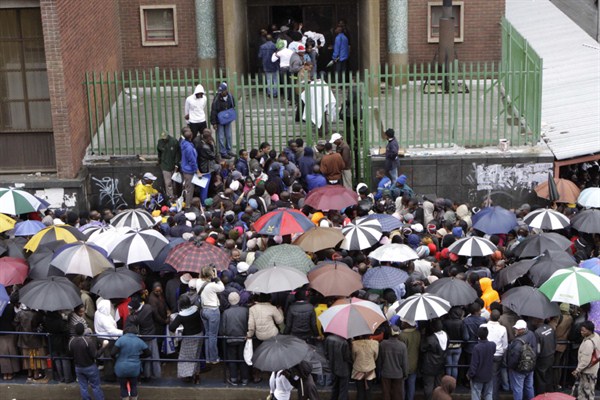Critics of democratic South Africa have long argued that the country maintains a Janus face toward the rest of the African continent. On one level it sees its future as inextricably bound up with that of the continent and it considers the promotion of stability, prosperity and conflict resolution in Africa as central pillars of its foreign policy. Yet on another level South Africa is viewed by its critics in Africa as a state that draws upon the language of interdependence and cooperation while ruthlessly pursuing its own narrow interests, often with scant regard for African sensitivities.
This ongoing debate about South Africa’s role in Africa—and indeed the country’s “African-ness”—has been captured in microcosm by the changes introduced in May 2014 to South Africa’s immigration regime that threaten to disadvantage Africans seeking to enter or remain in South Africa. These changes flow from the privileging of a narrow South African nationalism at the expense of the more idealistic pan-Africanist ideology supposedly informing South Africa’s public policy. They also risk reinforcing negative characterizations and stereotypes of Africans to the north as “aliens,” and threaten not only to keep new migrants out, but also potentially to endanger those already in.
Such a public discourse driven by fear and suspicion of outsiders rests uneasily next to South Africa’s own African renaissance rhetoric, and it also risks fanning the flames of xenophobia, which in 2008 caused widespread death, destruction and displacement for African migrants in South Africa and had a damaging impact on the country’s international image and standing. At the same time, it is important to acknowledge the very real dilemmas confronting the South African government as it seeks to achieve a balance between meeting its obligations to Africa and its need to address the urgent socio-economic needs of South Africans. Unrestricted migration in a region of such vast economic disparities can only mean a further flow of people into South Africa, the continent’s most sophisticated economy, which will in turn place greater pressure on the country’s stretched resources and aggravate an already catastrophic unemployment crisis among South Africans. Thus a reasonable argument could be made that it is actually unrestricted migration that will fuel xenophobia, as South Africans find themselves undercut in the job market and competing with newcomers—both legal and illegal—for housing and access to services. Against a backdrop of chronic joblessness, poverty and inequality, it becomes much more difficult to advance the rational argument that migrants’ enterprise and energy is a net gain for South Africa.

